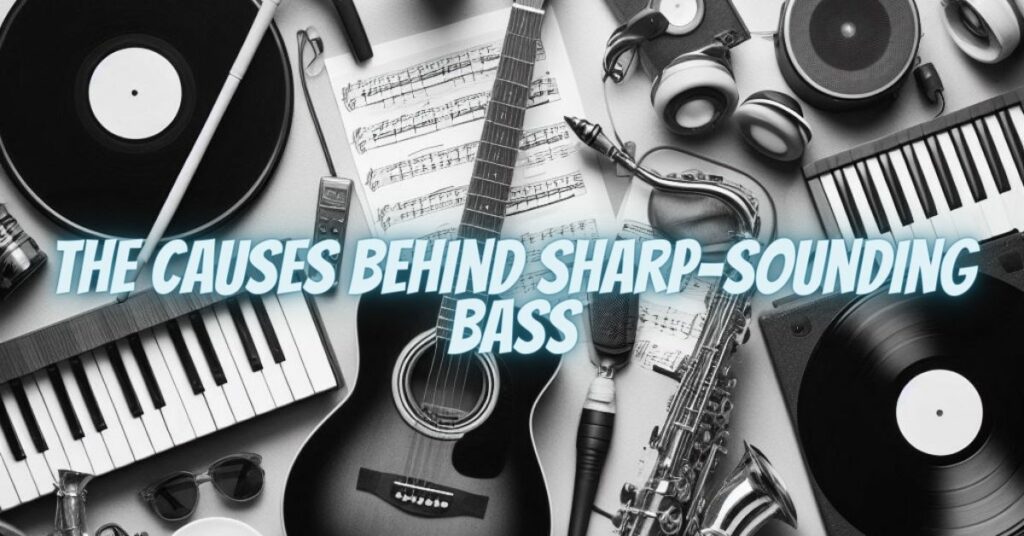The term “sharp” is not typically associated with bass frequencies, which are traditionally described as deep, powerful, and rumbling. However, there are situations where bass can sound sharp, and this phenomenon can impact your audio experience. In this article, we will explore why bass can sometimes sound sharp and the factors contributing to this auditory sensation.
The Nature of Bass Frequencies
Bass frequencies, also known as low frequencies, are typically associated with deep, booming, and resonant sounds. These frequencies, which range from approximately 20Hz to 250Hz, play a crucial role in music, movies, and audio effects, adding depth and impact to the audio experience.
Why Bass Can Sound Sharp:
- Distortion: One of the primary reasons bass can sound sharp is distortion. When audio systems, such as speakers or amplifiers, are pushed beyond their limits, they may produce distorted sound, especially in the lower frequencies. Distorted bass can be perceived as sharp and unpleasant.
- Clipping: Clipping occurs when an amplifier is unable to reproduce the entire waveform of a bass signal, resulting in squared-off waveforms. This can produce a sharp and harsh sound in the bass frequencies.
- High-Quality Equipment: Surprisingly, high-quality audio equipment can sometimes reveal details in audio recordings that lower-quality systems might miss. While this can enhance your listening experience, it can also make certain imperfections or distortions in bass more noticeable, leading to a perception of sharpness.
- Room Acoustics: The acoustics of your listening environment can impact how you perceive bass. Room reflections and standing waves can emphasize or attenuate certain frequencies, making them sound sharper or more pronounced.
- Overemphasis in EQ: If you’ve applied equalization (EQ) that excessively boosts certain bass frequencies or narrows the bandwidth, it can lead to a sharp or unnatural sound. EQ adjustments should be made carefully to avoid overemphasis.
- Low Bitrate Audio Files: When playing low-bitrate audio files, particularly those heavily compressed, the bass frequencies can lose detail and sound distorted. This distortion can manifest as sharpness in the bass.
Ways to Address Sharp Bass:
If you’re experiencing sharp or distorted bass and wish to correct it, consider these steps:
- Lower the Volume: Reduce the volume on your audio system to prevent overloading and distortion.
- Check for Clipping: Ensure your amplifier or audio source is not clipping, as this can cause sharp bass. Adjust settings to prevent clipping.
- Use High-Quality Audio Files: Opt for higher-bitrate audio files to maintain audio quality, especially in the bass frequencies.
- Proper Room Treatment: Improve room acoustics by adding acoustic treatments or positioning your speakers and subwoofers optimally to mitigate issues like reflections and standing waves.
- Subtle EQ Adjustments: If you’ve applied EQ to your audio, make subtle adjustments to avoid overemphasis or narrowing of bass frequencies.
- Upgrade Equipment: If you consistently experience sharp bass with your current equipment, consider upgrading to higher-quality audio components that can provide a cleaner and more detailed bass response.
While bass is typically associated with deep, resonant tones, various factors can lead to the perception of sharpness in the lower frequencies. These factors include distortion, clipping, room acoustics, and the quality of your audio equipment. By addressing these issues and making careful adjustments to your audio system and environment, you can enjoy a smoother, more natural, and less sharp bass experience.


